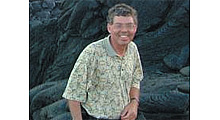
Doug Lung
The FCC Media Bureau has turned down an appeal by Clarity Media Systems, LLC that asked the bureau to review its denial of waivers that would have resulted in allowing a “Trucker TV” service to use 2 GHz BAS and CARS spectrum at Flying J truck stops nationwide. The details in Order DA 07-1946, however, indicate that protecting existing users of the band wasn't the only reason for the denial.
I first reported on Clarity’s attempts to get permission to launch the multichannel video service in March 2005 with the last update in Trucker TV Battle Continues in December 2009. Individual broadcasters and broadcast organizations including SBE, NAB and MSTV (now part of NAB) opposed the waivers, citing the potential for interference to BAS and CARS ENG operations in the band and the inadequacy of Clarity's proposed interference solutions. The band is also used by the Department of Defense and NASA.
“Clarity has failed to demonstrate that the expansive waiver of the Part 78 rules it seeks would serve the public interest, particularly since the service contemplated by Clarity could be offered using other spectrum for which waivers would not be required -- as unlicensed or leased spectrum, or by wire-based delivery methods that would not require spectrum licenses, as discussed below,” the FCC said in its July 2 order. “Clarity has thus failed to satisfy the standard for waiver.”
Why is the FCC acting now to reaffirm a decision it made in 2007? One clue may be in this statement in the Order: “Lastly, while granting these waivers would improve Clarity’s access to spectrum (Benefit No. 15), it would also encumber the spectrum and make it more difficult to make it available to other services, current and future, by raising the noise level, which can impair BAS and would be particularly deleterious to Advanced Wireless Services (AWS), including broadband, should the Commission decide to authorize that service in all or part of this band.”
The Order explains, “Various proposals have been made for repurposing spectrum for wireless broadband. Most recently, CTIA—The Wireless Association has filed a white paper in the National Broadband Plan Docket, GN Docket No. 09-51, urging that the Commission meet its responsibility under Section 6401(b)(2)(E) of the Middle Class Tax Relief and Job Creation Act of 2012 (“Spectrum Act”) by reallocating 15 MHz of this band to commercial mobile broadband use.”
“Trucker TV” may finally be dead, but threats to broadcasters' use of the 2 GHz BAS band remain!
The professional video industry's #1 source for news, trends and product and tech information. Sign up below.

Doug Lung is one of America's foremost authorities on broadcast RF technology. As vice president of Broadcast Technology for NBCUniversal Local, H. Douglas Lung leads NBC and Telemundo-owned stations’ RF and transmission affairs, including microwave, radars, satellite uplinks, and FCC technical filings. Beginning his career in 1976 at KSCI in Los Angeles, Lung has nearly 50 years of experience in broadcast television engineering. Beginning in 1985, he led the engineering department for what was to become the Telemundo network and station group, assisting in the design, construction and installation of the company’s broadcast and cable facilities. Other projects include work on the launch of Hawaii’s first UHF TV station, the rollout and testing of the ATSC mobile-handheld standard, and software development related to the incentive auction TV spectrum repack. A longtime columnist for TV Technology, Doug is also a regular contributor to IEEE Broadcast Technology. He is the recipient of the 2023 NAB Television Engineering Award. He also received a Tech Leadership Award from TV Tech publisher Future plc in 2021 and is a member of the IEEE Broadcast Technology Society and the Society of Broadcast Engineers.
